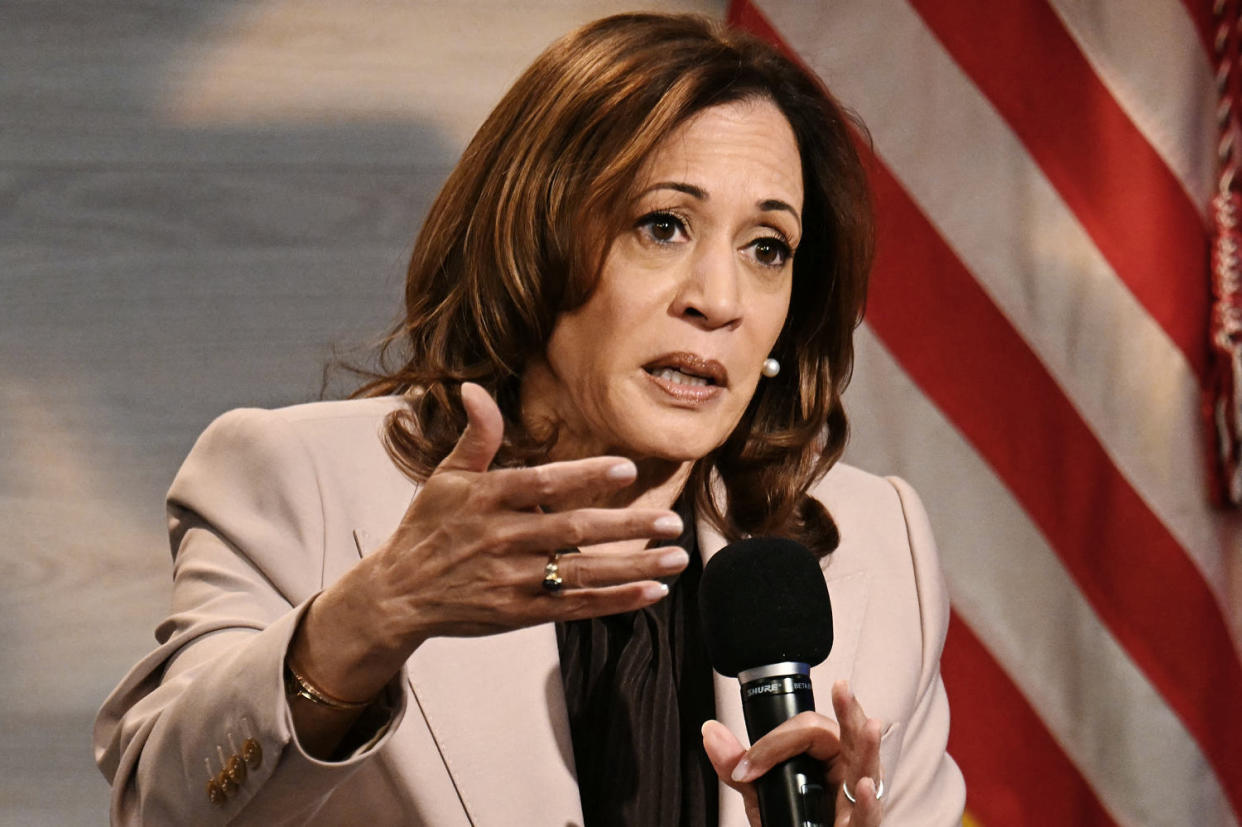In effort to shore up blue wall, Harris eyes Wisconsin

MADISON, Wis. — The battle for one of the closest swing states is intensifying as Vice President Kamala Harris sweeps into this deep blue college town and state capital Friday for an evening rally.
This week, several new polls in Wisconsin showed an extremely tight race. Harris fared slightly better than former President Donald Trump — but all of the polls were within their margins of error. AARP’s survey came in at Harris 49%, Trump 48%. Quinnipiac University and Marist College also showed 1-point Harris edges, 49% to 48% in Quinnipiac’s and 50% and 49% in Marist’s. The fight over Wisconsin — considered a must-win for Harris as part of Democrats’ so-called blue wall — could tilt the election.
The Harris campaign has been ramping up its presence in the state since she took over the top of the Democratic ticket, and her selection of Minnesota Gov. Tim Walz has re-energized staff members in the state, a campaign official told NBC News. His blue-collar roots and strong union background are seen as ways to bolster support from organized labor, which could be crucial in the Midwest, the source said.
But while Harris has enjoyed broad union support and the backing of the United Auto Workers, this week the Teamsters declined to endorse any presidential candidate, the first time since 1996 that the powerful union hasn’t chosen a Democrat. (The Teamsters released their own internal poll that found nearly 60% of its rank-and-file members preferred Trump over Harris.)
Walz may come in handy elsewhere: cutting into Republicans' margins in the state’s many rural areas. Walz rallied supporters this past Saturday in Superior, a small town in Wisconsin’s northwest corner, at an event also attended by his wife, Minnesota first lady Gwen Walz. Superior shares a media market with Duluth, Minnesota, so its viewers are accustomed to seeing quite a bit of Walz — a familiarity the Harris campaign is keen to capitalize on.
Still, Walz has walked a fine line with another Democratic constituency: environmentalists. He has often highlighted his support for fighting climate change, but some of his critics have raised concerns about his record on mining. As governor of Minnesota, which has massive deposits of nickel and copper and where, for decades, companies have dug for iron ore used to make steel, Walz has deep experience with miners and unions. The state’s Iron Range has long been a source for economic development, but some environmental groups have faulted Walz for not fighting sulfide mining in his home state.
And his military service cuts both ways with voters. While the Harris campaign has touted Walz as "a tireless advocate for our men and women in uniform," it nonetheless acknowledged that he “misspoke” when he described having "weapons of war, that I carried in war," despite never having deployed to a combat zone.
Harris, though, is at the top of the ticket, and her decision to hold a rally in Milwaukee during the Democratic National Convention highlighted how crucial the state is. With more than 200 staffers statewide, the Harris campaign touts 48 offices across Wisconsin, including some in smaller, more rural areas that Trump won in 2020. Compared to 2016, Democrats are also trying to run up vote totals in their stronghold of Milwaukee, home to many Black and Latino voters.
As for the Madison area, Dane County is the fastest-growing county in the state — and a Harris campaign official pointed out that Democratic margins increased from 2020 to 2022 and then above that for the pivotal state Supreme Court race last year. Voter enthusiasm in Dane County has surged, this official said.
But the Trump campaign is mounting its own effort in the state. Trump’s running mate, Sen. JD Vance of Ohio, rallied supporters in Eau Claire this week — and Trump’s team says it’s focused on reaching voters who had previously been less politically engaged.
“Kamala Harris’ policies have failed Wisconsin: prices are climbing, violence is crippling communities, manufacturers are struggling to do business, and family farms are shuttering across the state,” said Anna Kelly, a spokesperson for the Republican National Committee.
An RNC official also said the Trump campaign and the Wisconsin GOP have more than 70 staff members and 40 offices across the state. The official argued that Democrats haven’t matched their mail-in ballot registrations compared with 2020 — and that doesn’t bode well.
“President Trump is making inroads with young voters on campuses like the University of Wisconsin-Madison, and his message of making American wealthy, safe, and strong again is resonating with Wisconsinites of all backgrounds,” Kelly said. “The momentum is on our side.”
This article was originally published on NBCNews.com
